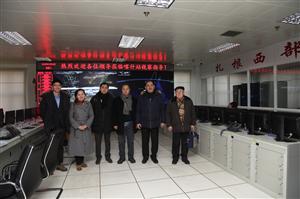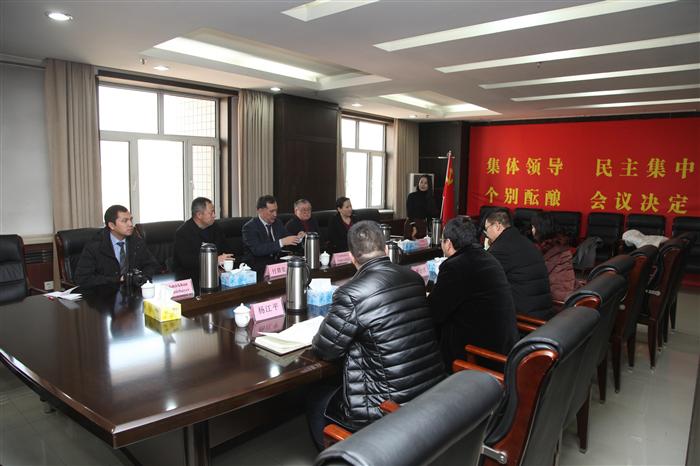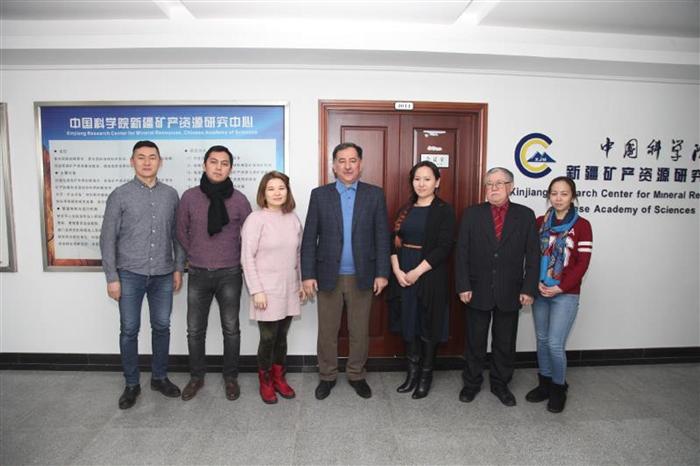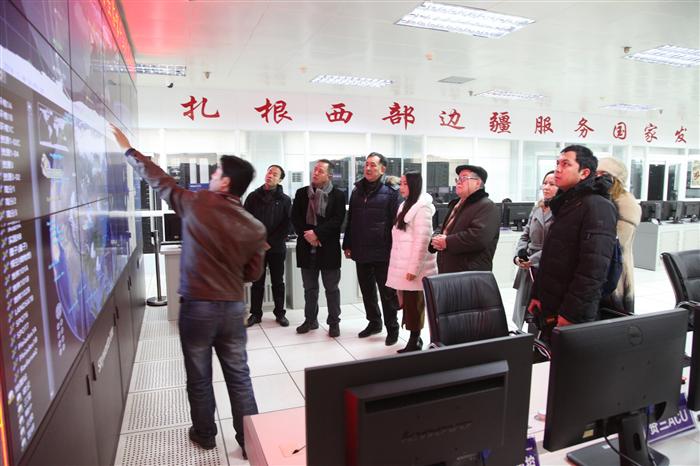- Main page
- News
Cooperation in the direction of Chinese space industry
1/22/2018
Cooperation in the direction of Chinese space industry
Within the framework of the agreement between the Al-Farabi Kazakh National University and the RADI Institute has been visited the main research facilities and organizations in the cities of Kashgar and Urumqi by university delegation headed by the Vice-rector for scientific and innovative activities of Ramazanov T.S., Technology Park Director Temirbaev A.A., director of the Center for Earth Remote Sensing Sakhariev B.S. and Associate Professor of the Faculty of Geography and Nature Management Shokparova D.K.
The research center in the city of Kashgar is one of the main 8 centers of the RADI Institute of the AS CAS. Founded in September 2012, the Institute for Remote Sensing and Digital Earth (RADI) at the AS CAS is one of the important institutions that now conducts research in four main areas: the collection and processing of remote sensing data from the Earth's space-based observation system; fundamental research in the field of remote sensing and technologies for creating geoinformation systems; analysis of information on the environment and resources on the basis of the digital platform for Earth science; and research covering a wide range of academic disciplines and international cooperation in science and technology.
During the visit, a meeting was held with the director of the center, Professor Fu and employees of the ground-based data reception center from Earth remote sensing satellites in Kashgar. The main objects of the research center, the station for receiving and processing information were visited, our delegation was acquainted with the main work of the center and the characteristics of the antennas built on the territory of the research center. Within the framework of the meeting, issues related to the preparation of joint research programs and projects on the One Belt One Road Initiative, the use of remote sensing data received from the ground station of the Earth remote sensing system for scientific purposes, the upgrading of the qualifications of the university and the center staff, the possibility of installing a virtual station on the basis of KazNU, training of scientists and specialists in remote sensing and GIS, organizing and holding international conferences and joint summer schools for university students on the basis of the RADI Institute in Kashgar and Beijing. In September this year, as part of the IV International Symposium on Earth Observation in Arid and Semi-arid regions (ISEO2018), it was proposed to organize a section at this event and appoint a moderator from KazNU.
The delegation visited the Technology and Program Development Park in Urumqi for further cooperation in developing IT structure and creation an IT Park on the basis of KazNU. The staff of the park demonstrated the main developments such as modern drones (unmanned aerial vehicles, UAV) with the exact coordination of the data, having the possibility of raising 5 cameras, allowing to shoot at an angle for further creation of a three-dimensional model of relief with high accuracy, and data processing, software and techniques for situation analysis and decision-making.
Training of highly qualified specialists is the main goal of universities. To improve the quality of education and improve the skills of specialists, an exchange program for students and teaching staff between the universities of the two countries is being actively pursued. To further develop relations and set up new contacts, the Kashgar University (Kashgar) and the Xinjiang Institute of Ecology and Geography at the Chinese Academy of Sciences (Urumqi) were visited. Within the framework of the meeting with the representatives of the educational centers, the options for mutually beneficial cooperation were considered, including but not limited to the following areas: humanitarian, social and natural sciences, exchange of university employees and teachers; organization of refresher courses for faculty and specialists; exchange of teachers for co-organized courses; students exchange students for the purpose of ensuring the passage of research and internship; organization of conferences, scientific and technical seminars, academic meetings and symposia; attraction of leading scientists for the scientific management of doctoral PhD in the university partner, etc.





